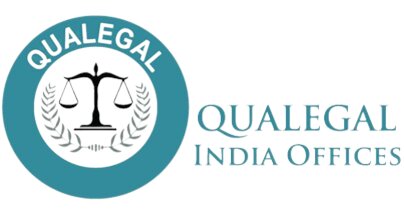Best ESG Advisory & Compliance Lawyers in New Delhi
Share your needs with us, get contacted by law firms.
Free. Takes 2 min.
List of the best lawyers in New Delhi, India
About ESG Advisory & Compliance Law in New Delhi, India
Environmental, Social, and Governance (ESG) Advisory and Compliance is an evolving area of law and business in New Delhi, India. ESG refers to the set of standards used to evaluate a company’s impact on society, the environment, and how transparent and accountable it is in governance. In India, both domestic and foreign businesses are increasingly required to align their activities with ESG standards. This ensures ethical business conduct, transparency, and sustainable growth. Regulatory frameworks from the Securities and Exchange Board of India (SEBI), Ministry of Corporate Affairs (MCA), and other authorities guide ESG compliance. As New Delhi is a leading business and governance hub, companies operating here face unique compliance challenges and opportunities under the local regulatory landscape.
Why You May Need a Lawyer
Seeking legal help is important in many ESG Advisory and Compliance scenarios. Some of the most common situations requiring legal expertise include:
- Understanding and interpreting new or existing ESG regulations relevant to your industry
- Implementing internal policies and frameworks to ensure ESG compliance
- Filing necessary disclosures and reports, such as Business Responsibility and Sustainability Reports (BRSR)
- Handling government investigations or regulatory notices relating to ESG practices
- Resolving environmental, labor, and governance disputes
- Mergers, acquisitions, or partnerships where ESG due diligence is critical
- Advising on stakeholder communication and risk management relating to ESG matters
- Assisting with sustainability certifications and audit processes
- Guiding foreign companies wishing to comply with local ESG requirements in New Delhi
- Ensuring ongoing compliance to avoid penalties and build brand reputation
Local Laws Overview
New Delhi, as part of India’s national capital territory, is governed by Indian laws and regulations on ESG, with some local bodies providing additional guidelines. The key laws and frameworks impacting ESG Advisory and Compliance include:
- SEBI Regulations: Mandate the top listed companies to file Business Responsibility and Sustainability Reports (BRSR) annually.
- Companies Act, 2013: Sets requirements for Corporate Social Responsibility (CSR) under Section 135, including spending at least two percent of average net profit towards CSR activities.
- Environmental Protection Act, 1986: Mandates compliance with environmental regulations and reporting on emissions, waste management, and resource usage.
- Labour and Social Laws: Set standards for fair labor practices, non-discrimination, health, and safety in the workplace.
- Delhi Pollution Control Committee (DPCC): Lays out guidelines for pollution control and sustainable practices within Delhi, often stricter than national standards.
- Indian Penal Code and Prevention of Corruption Act: Ensure ethical conduct and good governance.
- International norms: For companies with international operations or funding, compliance with global ESG standards such as GRI or SASB may also be relevant.
Staying informed about changes in these laws is crucial, as regulators frequently update requirements according to local environmental and social priorities.
Frequently Asked Questions
What does ESG compliance mean in India?
ESG compliance in India involves following environmental, social, and governance standards set by regulatory bodies. This includes reducing environmental impact, promoting social welfare, and implementing ethical governance practices.
Which organizations are required to comply with ESG regulations in New Delhi?
Primarily, all listed companies, and certain large unlisted companies, are required to comply with mandatory ESG reporting and practices. Companies engaged in sensitive sectors or with significant environmental impact may also fall under specific ESG norms.
What are the main regulatory authorities for ESG compliance in New Delhi?
The main authorities are the Securities and Exchange Board of India (SEBI), Ministry of Corporate Affairs (MCA), and the Delhi Pollution Control Committee (DPCC).
What is the Business Responsibility and Sustainability Report (BRSR)?
The BRSR is a comprehensive disclosure report mandated by SEBI for the top 1000 listed companies in India, covering their ESG performance and strategies.
Is Corporate Social Responsibility (CSR) mandatory in India?
Yes, under Section 135 of the Companies Act, certain companies meeting specific financial thresholds must spend a minimum amount on CSR activities every financial year.
How can a lawyer assist with ESG compliance?
A lawyer can interpret relevant laws, help develop compliance frameworks, draft necessary documentation, guide regulatory disclosures, and represent companies during regulatory inspections or investigations.
Are there any penalties for non-compliance with ESG requirements?
Yes, non-compliance can lead to penalties, fines, restrictions on business operations, and reputational damage. Penalties vary depending on the regulation that has been breached.
How does ESG compliance benefit a company?
Complying with ESG requirements enhances reputation, attracts investors, opens new business opportunities, and reduces regulatory risks. It also promotes long-term sustainability and stakeholder trust.
Do startups and small businesses need to comply with ESG laws?
While many ESG requirements apply to listed and large companies, certain local environmental and labor regulations apply to all businesses irrespective of size. Additionally, voluntary ESG adoption is encouraged for all companies.
How often do ESG regulations change in New Delhi?
ESG regulations are updated regularly to reflect evolving priorities and global standards. Companies should monitor regulatory updates and seek legal advice to remain compliant.
Additional Resources
If you require more information or wish to stay updated on ESG Advisory and Compliance in New Delhi, consider the following resources:
- Securities and Exchange Board of India (SEBI)
- Ministry of Corporate Affairs (MCA)
- Delhi Pollution Control Committee (DPCC)
- Confederation of Indian Industry (CII) ESG Centre of Excellence
- Institute of Company Secretaries of India (ICSI)
- Industry-specific Chambers of Commerce
- Environmental lawyers and specialized ESG law firms in New Delhi
Next Steps
If you need legal assistance in ESG Advisory and Compliance in New Delhi, consider the following steps:
- Identify your specific ESG compliance needs based on your industry and company size
- Consult an experienced ESG or corporate law firm familiar with the latest local and national regulations
- Organize and review your existing policies, documentation, and disclosures for compliance gaps
- Prepare questions or concerns to discuss with your legal advisor
- Stay updated on regulatory developments and best practices in ESG
- Implement recommended changes and monitor your ongoing compliance with the guidance of professionals
Actively seeking guidance early can help you avoid legal issues and ensure your business remains sustainable and responsible in the long term.
Lawzana helps you find the best lawyers and law firms in New Delhi through a curated and pre-screened list of qualified legal professionals. Our platform offers rankings and detailed profiles of attorneys and law firms, allowing you to compare based on practice areas, including ESG Advisory & Compliance, experience, and client feedback.
Each profile includes a description of the firm's areas of practice, client reviews, team members and partners, year of establishment, spoken languages, office locations, contact information, social media presence, and any published articles or resources. Most firms on our platform speak English and are experienced in both local and international legal matters.
Get a quote from top-rated law firms in New Delhi, India — quickly, securely, and without unnecessary hassle.
Disclaimer:
The information provided on this page is for general informational purposes only and does not constitute legal advice. While we strive to ensure the accuracy and relevance of the content, legal information may change over time, and interpretations of the law can vary. You should always consult with a qualified legal professional for advice specific to your situation.
We disclaim all liability for actions taken or not taken based on the content of this page. If you believe any information is incorrect or outdated, please contact us, and we will review and update it where appropriate.

















